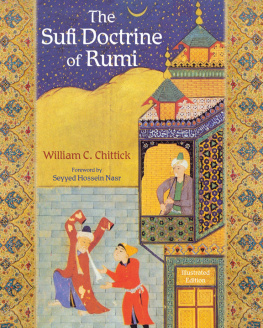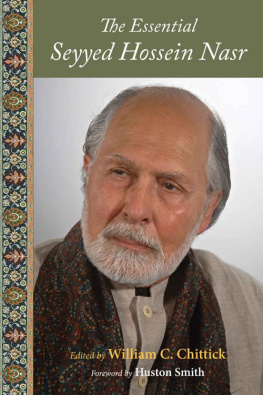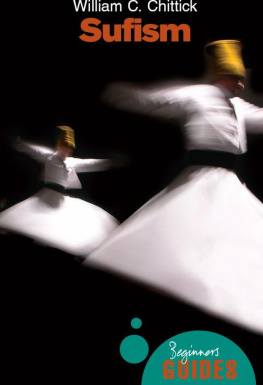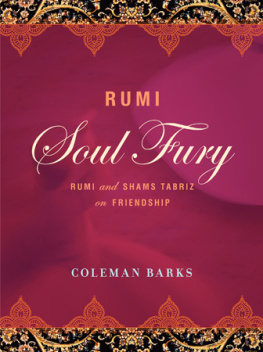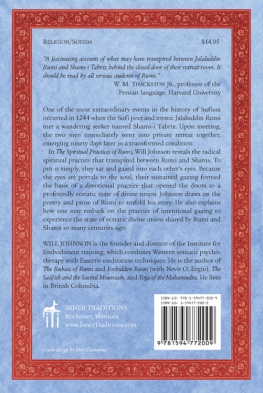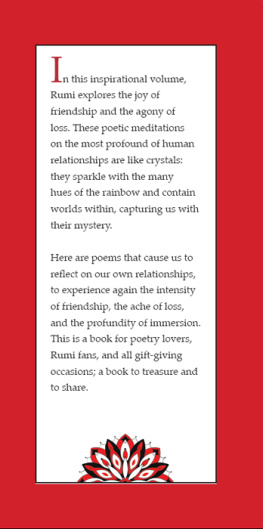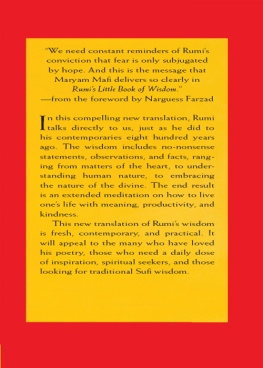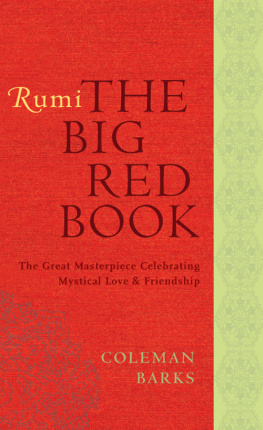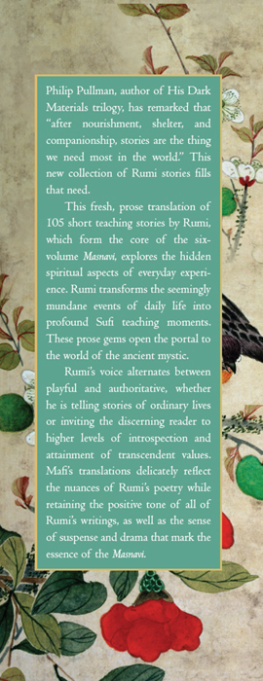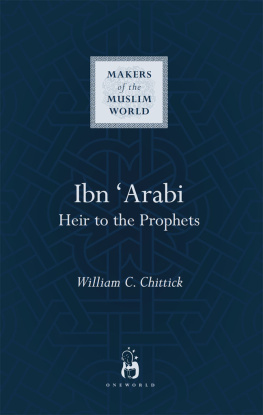Titles in the Spiritual Masters: East & West
Series
The Essential Swami Ramdas: Commemorative Edition,
compiled by Susunaga Weeraperuma, 2005
The Essentials of Shinran: The Path of True Faith,
edited by Alfred Bloom, 2006
The Golden Age of Zen: Zen Masters of the Tang Dynasty,
by John C.H. Wu, 2003
Hnen the Buddhist Saint: Essential Writings and Offi cial Biography,
edited by Joseph A. Fitzgerald, 2006
Introduction to Hindu Dharma: The 68th Jagadguru of Kanchipuram,
edited by Michael Oren Fitzgerald, 2006
The Laughing Buddha of Tofukuji: The Life of Zen Master Keido Fukushima,
by Ishwar C. Harris, 2004
Life and Teaching of Sri Anandamayi Ma,
by Alexander Lipsky and Sri Anandamayi Ma, 2006
Messenger of the Heart: The Book of Angelus Silesius,
translated, introduced, and drawn by Frederick Franck, 2005
Paths to Transcendence: According to Shankara, Ibn Arabi & Meister Eckhart,
by Reza Shah-Kazemi, 2006
The Sufi Doctrine of Rm: Illustrated Edition,
by William C. Chittick, 2005
Tierno Bokar: The Sufi Sage from Mali,
by Amadou Hampat B, translated by Fatima Jane Casewit, 2007
Biographical Notes
WILLIAM C. CHITTICK is a professor in the Department of Asian and AsianAmerican Studies at the State University of New York, Stony Brook. He is author and translator of twenty-five books and one hundred articles on Sufism, Shism, and Islamic thought in general. Among his publications are The Sufi Path of Love: The Spiritual Teachings of Rumi (1983), The Psalms of Islam (1988), The Self-Disclosure of God: Principles of Ibn al-Arabs Cosmology (1998), Sufism: A Short Introduction (2000), The Heart of Islamic Philosophy: The Quest for Self-Knowledge in the Teachings of Afdal al-Dn Kshn (2001), and Me & Rumi: The Autobiography of Shams-i Tabrizi (2004).
SEYYED HOSSEIN NASR is University Professor of Islamic Studies at the George Washington University. The author of over fifty books and five hundred articles, he is one of the worlds most respected writers and speakers on Islam, its arts and sciences, and its traditional mystical path, Sufism. His publications include Sufi Essays, Knowledge and the Sacred, Religion and the Order of Nature, A Young Muslims Guide to the Modern World, The Heart of Islam: Enduring Values for Humanity, and Islam: Religion, History, and Civilization. A volume in the prestigious Library of Living Philosophers series has been dedicated to his thought.
I. Sufism and Islam
S ufism is the most universal manifestation of the inner dimension of Islam; it is the way by which man transcends his own individual self and reaches God.1 It provides within the forms of the Islamic revelation the means for an intense spiritual life directed towards the transformation of mans being and the attainment of the spiritual virtues; ultimately it leads to the vision of God. It is for this reason that many Sufis define Sufism by the saying of the Prophet of Islam concerning spiritual virtue (ihsn): It is that thou shouldst worship God as if thou sawest Him, for if thou seest Him not, verily He seeth thee.
Islam is primarily a way of knowledge,2 which means that its spiritual method, its way of bridging the illusory gap between man and Godillusory, but none the less as real as mans own egois centered upon mans intelligence. Man is conceived of as a theomorphic being, a being created in the image of God, and therefore as possessing the three basic qualities of intelligence, free-will, and speech. Intelligence is central to the human state and gains a saving quality through its content, which in Islam is the Shahdah or profession of faith: L ilha illallh, There is no god but God; through the Shahdah man comes to know the Absolute and the nature of reality, and thus also the way to salvation. The element of will, however, must also be taken into account, because it exists and only through it can man choose to conform to the Will of the Absolute. Speech, or communication with God, becomes the meansthrough prayer in general or in Sufism through quintessential prayer or invocation (dhikr) of actualizing mans awareness of the Absolute and of leading intelligence and will back to their essence.3

The Shahdah (calligraphy by Khurshid Alam)
Through the spiritual methods of Sufi sm the Shahdah is integrally realized within the being of the knower. The knowledge of Reality which results from this realization, however, must not be confused with knowledge as it is usually understood in everyday language, for this realized knowledge is To know what is, and to know it in such a fashion as to be oneself, truly and eff ectively, what one knows.4 If the human ego, with which fallen man usually identifies himself, were a closed system, such knowledge would be beyond mans reach. However, in the view of Sufi sm, like other traditional metaphysical doctrines, the ego is only a transient mode of mans true and transcendent self. Therefore the attainment of metaphysical knowledge in its true sense, or spiritual realization, is the removal of the veils which separate man from God and from the full reality of his own true nature. It is the means of actualizing the full potentialities of the human state.
Metaphysical knowledge in the sense just described can perhaps be designated best by the term gnosis (irfn), which in its original sense and as related to Sufi sm means Wisdom made up of knowledge and sanctity.5 Many Sufis speak of gnosis as being synonymous with love, but love in their vocabulary excludes the sentimental colorings usually associated with this term in current usage. The term love is employed by them because it indicates more clearly than any other word that in gnosis the whole of ones being knows the object and not just the mind; and because love is the most direct reflection in this world, or the truest symbol in the traditional sense, of the joy and beatitude of the spiritual world. Moreover, in Sufi sm, as in other traditions, the instrument of spiritual knowledge or gnosis is the heart, the center of mans being;6 gnosis is existential rather than purely mental.
Rm indicates the profound nature of love (ishq or mahabbah), a nature which can completely transform the human substance, by saying that in reality love is an attribute of God7 and that through it man is freed from the limitations which define his state in the world.
He (alone) 8 whose garment is rent by a (mighty) love is purged entirely of covetousness and defect.
Hail, O Love that bringest us good gainthou art the physician of all our ills,
The remedy of our pride and vainglory, our Plato and our Galen (I, 22-24).
The interrelationship between love and knowledge is clearly expressed in the following passage:
By love dregs become clear; by love pains become healing,
By love the dead is made living....
This love, moreover, is the result of knowledge: who (ever) sat in foolishness on such a throne?
Next page
